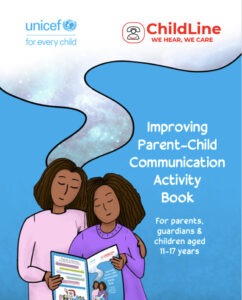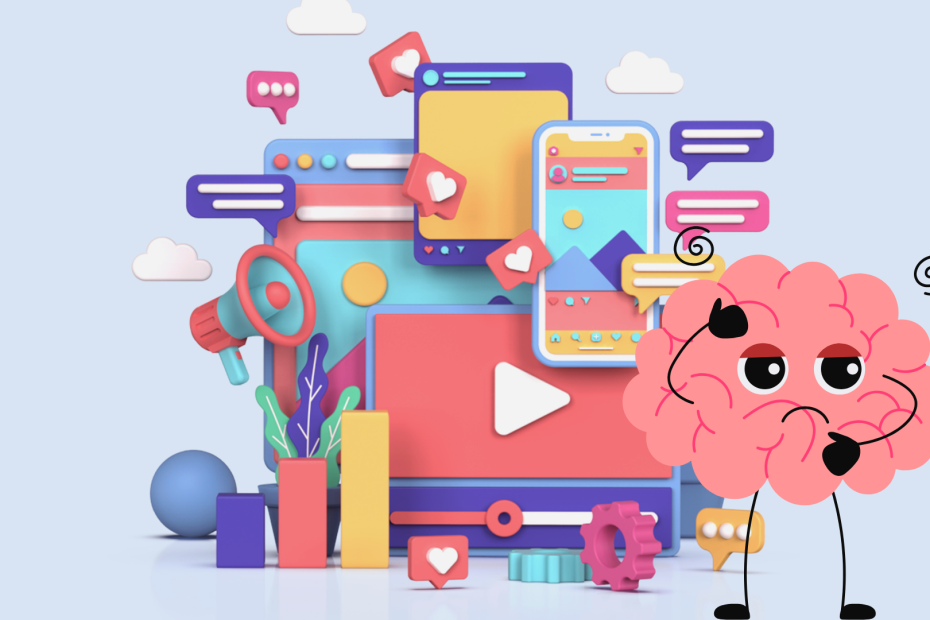Social media has become an integral part of the daily lives of youths, offering opportunities for communication, self-expression, and access to information. However, alongside its benefits, there are growing concerns about its impact on mental health.
Positive Impacts of Social Media
- Social Connectivity
- Social media platforms like WhatsApp, Instagram, Snapchat, and TikTok help young people stay connected with friends and family.
- For those with social anxiety or physical disabilities, these platforms can offer a comfortable way to build and maintain relationships.
- Access to Support and Information
- Online communities provide valuable support for mental health challenges like depression and anxiety.
- Social media also offers easy access to educational content and mental health resources.
- Opportunities for Self-Expression
- Social media platforms enable creative expression through photo sharing, videos, writing, and art. This can boost self-confidence and support the development of personal identity.
Negative Impacts of Social Media
- Increased Anxiety and Depression
- Numerous studies have found a connection between heavy social media usage and heightened symptoms of anxiety and depression. Constant exposure to idealized images and filtered realities can distort users’ perceptions of their own lives, leading to dissatisfaction and emotional distress.
- Social media often amplifies the fear of missing out (FOMO), as users frequently see others engaging in exciting activities or enjoying seemingly perfect lives. This can create feelings of exclusion, loneliness, and anxiety, especially among younger audiences.
- Platforms like Instagram and TikTok are filled with highly curated content. When users compare themselves to these often unrealistic portrayals, it can lead to negative self-image and a diminished sense of self-worth. The constant need for validation through likes and comments may further contribute to low self-esteem.
- Cyberbullying
- Victims of cyberbullying often experience deep emotional distress, including feelings of isolation, depression, anxiety, and, in severe cases, suicidal thoughts. The persistent and inescapable nature of online abuse can make it more damaging than traditional forms of bullying, as it can occur at any time and reach a wide audience instantly.
- Addiction and Sleep Disruption
- Users feel compelled to check their accounts constantly, even in inappropriate or unsafe situations. This compulsive engagement can interfere with daily responsibilities, academic performance, and face-to-face relationships.
- Additionally, prolonged screen time, especially before bedtime, disrupts sleep patterns by interfering with the body’s natural circadian rhythms. The blue light emitted from screens suppresses melatonin production, making it harder to fall asleep. Poor sleep quality is linked to irritability, decreased cognitive performance, and heightened risk of mental health issues.
- Unrealistic Standards and Body Image Issues
- Social media often promotes unrealistic beauty ideals through filtered and edited images. This can lead to poor body image, especially among young girls who are more likely to compare themselves to influencers. These comparisons can contribute to low self-esteem and eating disorders.
Mitigating the Negative Effects
- Digital Literacy Education
- Educating young people on how to critically evaluate online content helps them recognize unrealistic portrayals and harmful patterns. Promoting digital literacy encourages mindfulness, balanced social media use, and fosters healthier online habits.
- Parental and School Involvement
- Open communication between parents, teachers, and children is key to understanding online experiences. By monitoring social media use and encouraging healthy digital habits, adults can help guide responsible and safe engagement online.
- Platform Responsibility
- Social media companies play a critical role in user safety. They can help mitigate harm by strengthening content moderation, enforcing age restrictions, and providing mental health tools like usage reminders and links to crisis support resources.
- Mental Health Support Services
- Access to mental health support, both online and offline, is essential, especially for young users. Services tailored to youth can provide early intervention, guidance, and a safe space to seek help when struggling with social media-related issues.
Conclusion
Social media offers many valuable benefits, such as fostering social connections, creativity, and access to important information. However, it also carries significant risks for youth mental health, including anxiety, depression, and body image issues. To address these challenges, a balanced approach is essential. This includes educating young people to use social media critically, encouraging open communication between parents, teachers, and children, promoting responsible design and moderation by social media platforms, and ensuring access to mental health support services. The goal should not be to eliminate social media altogether but to cultivate healthier, more mindful, and informed use that maximizes its benefits while minimizing harm.









